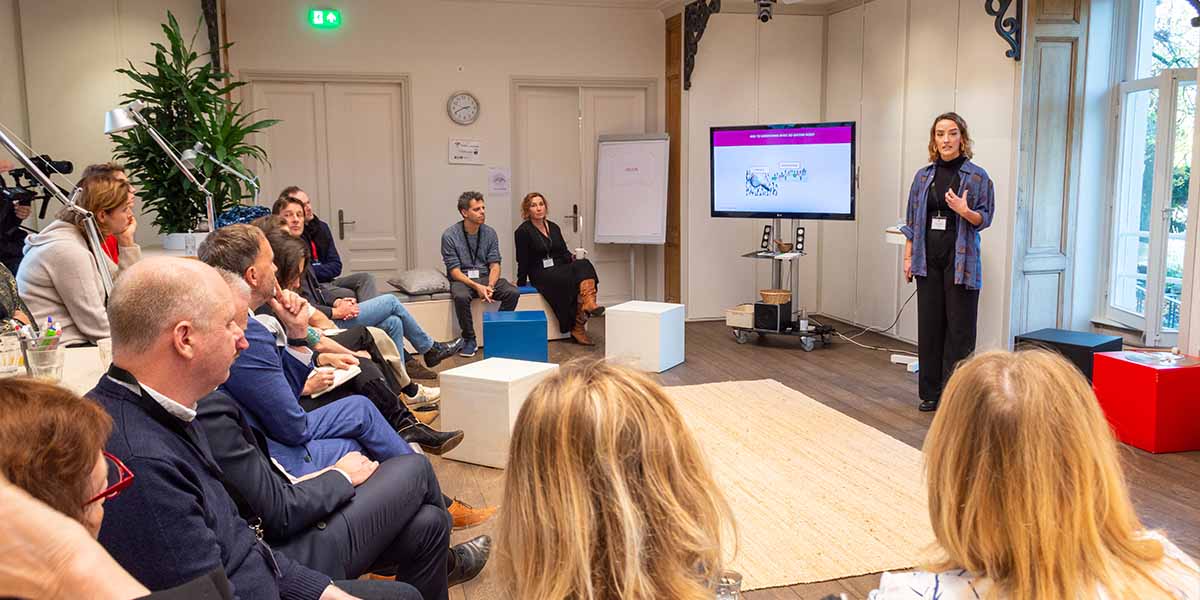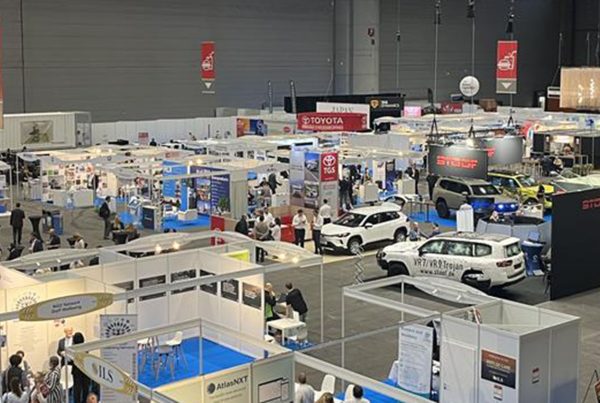The key ingredients of for-purpose leadership
On 24th November we held our first Knowledge Festival Live in partnership with THNK School of Creative Leadership, at their offices in Amsterdam. At a time when the global challenges loom larger than ever, we invited leaders from across the for-purpose sector to come together to get a better understanding of what it takes to lead effectively and explore how to develop leadership in yourself and your teams.
The challenges facing for-purpose leaders
The starting point for the discussion was a piece of research based on the experience of for-purpose leaders, across a range of mainly Europe-based organizations. Our Researcher, Hannah Postma took us through the challenges most often noted by leaders; volatile contexts characterized by things like climate change and political instability, as well as the movements which have arisen in response; to achieve diversity, equity and inclusion and the need to shift the power to the communities closest to the problems.
In her research, Hannah noted that leaders respond to these strategic challenges with their own personal practices and approaches to leadership. The key “ingredients” leaders identified as essential include: Self-awareness, authenticity, vision, empathy, vulnerability and inclusivity. Vision was the ingredient most often cited by research participants. When asked to choose which ingredient which most resonated for leaders at the festival, many gathered around self-awareness and vulnerability.
So how can you develop these ingredients in yourself? One of the key pitfalls for leaders in the for-purpose sector is hidden in the name. The “purpose” of the organization often overrides a leader’s personal purpose. The mission is prioritized over the need to develop leadership skills to better carry out that mission. This was also noted as something which leads to a high level of burnout in the sector.
The co-leadership model
The next session included a presentation on co-leadership from our consultant Sobhi Khatib – an area we increasingly see discussion around at Oxford HR at the moment, with many organisations moving towards considering this model. Strategic partnerships at a senior level are useful for bringing in more diverse leadership and skills and after an insightful presentation, our participants engaged in a Lego building exercise to simulate the experience of co-leadership. One of the main insights to emerge from this session, was that you go faster when you start by co-creating a strong vision.
People over process
The final session of the afternoon came from Femke Bartels of THNK, on how to support teams during deep transitions – a topic relevant to many organisations in the room, who were either currently experiencing such a transition, or had recent experience of one. Femke acknowledged “change can cause feelings of resistance, fear and a sense of loss. These feelings need to be acknowledged in order to create trust for new ways of being and doing to emerge.”
It was an insightful, engaging and playful afternoon, encompassing the nature of the Knowledge Festival and to hold space for important conversations in the sector. Our full research paper will be available in January so please sign up here to receive this or get in touch for further information.
Finally, thank you to our partners at THNK for co-hosting and follow us on LinkedIn for more information about our next Knowledge Festival Live!



